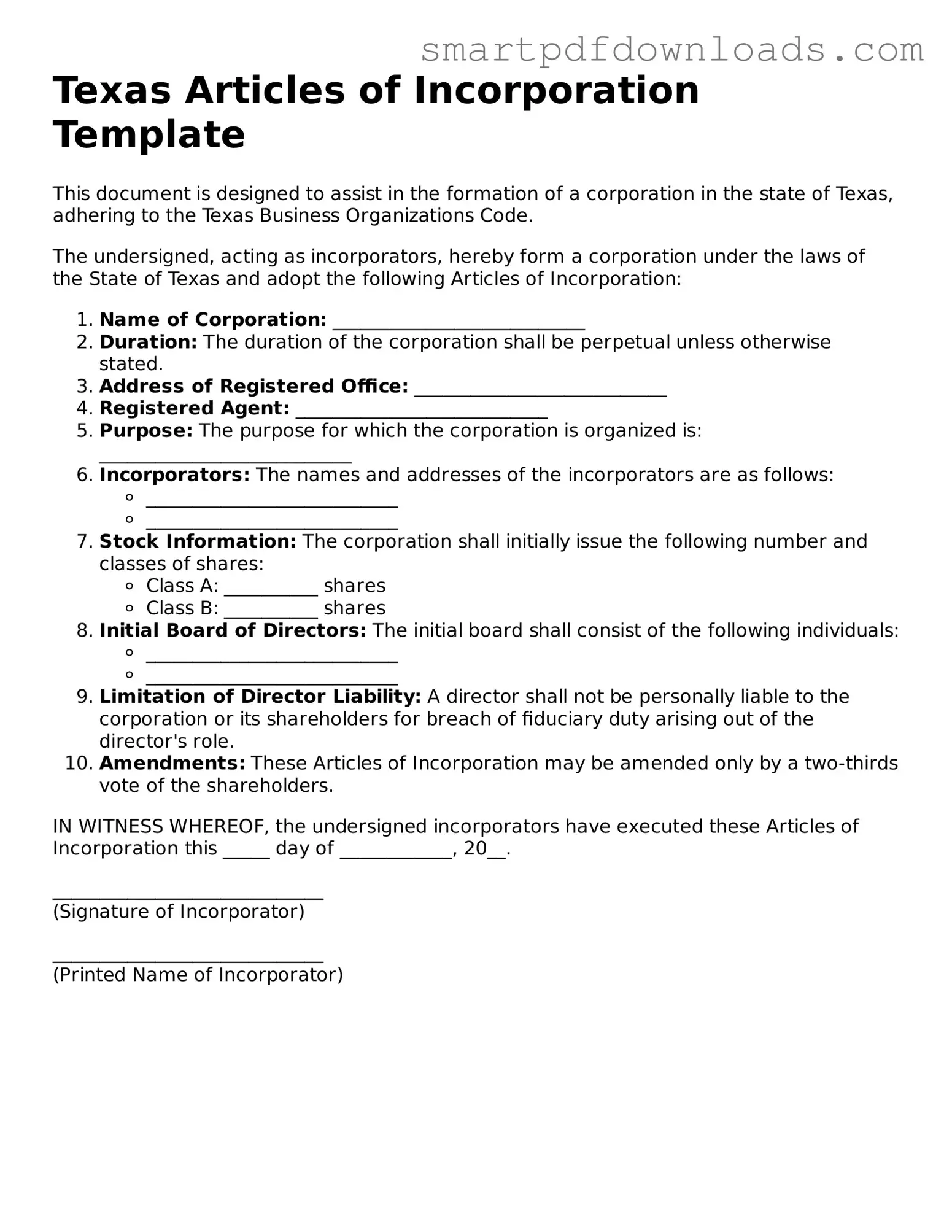Legal Articles of Incorporation Form for the State of Texas
The Texas Articles of Incorporation form is a crucial document that officially establishes a corporation in the state of Texas. This form outlines essential details about the corporation, including its name, purpose, and the structure of its management. Completing this form correctly is vital for ensuring compliance with state laws and for protecting your business interests.
Edit Articles of Incorporation Online

Legal Articles of Incorporation Form for the State of Texas
Edit Articles of Incorporation Online

Edit Articles of Incorporation Online
or
⇓ PDF File
Finish the form and move on
Edit Articles of Incorporation online fast, without printing.